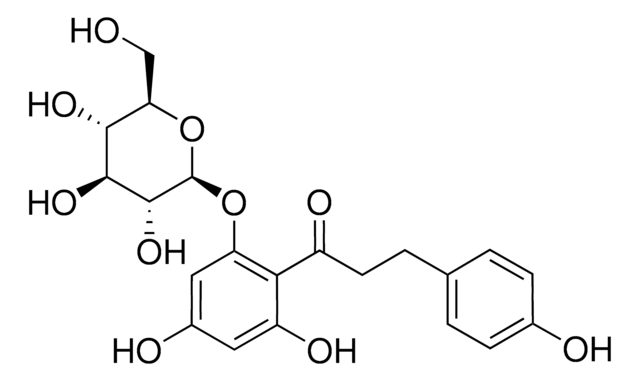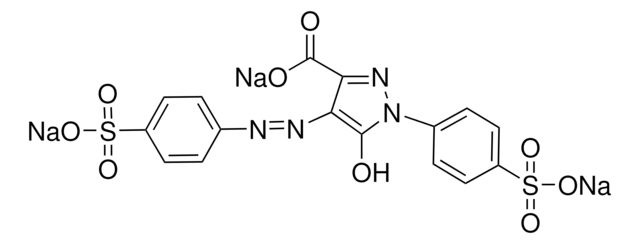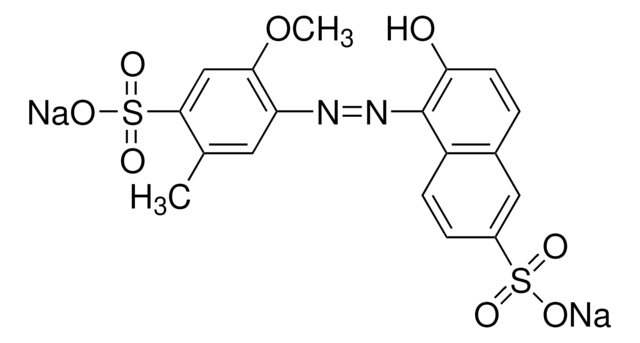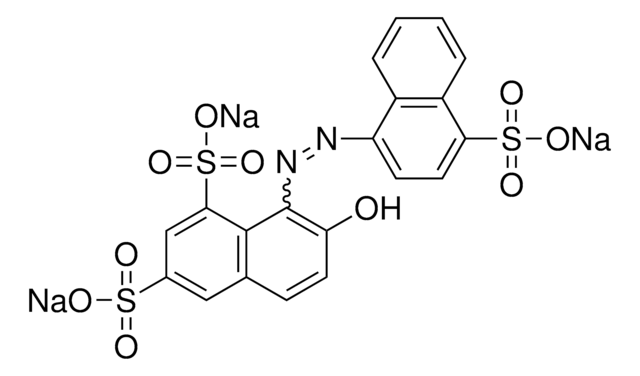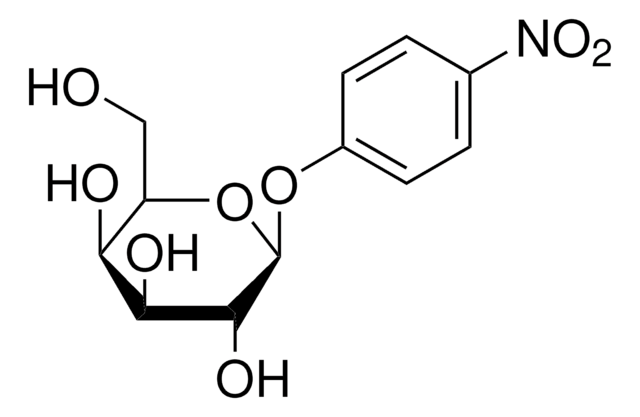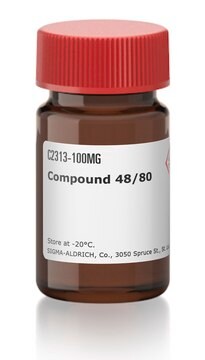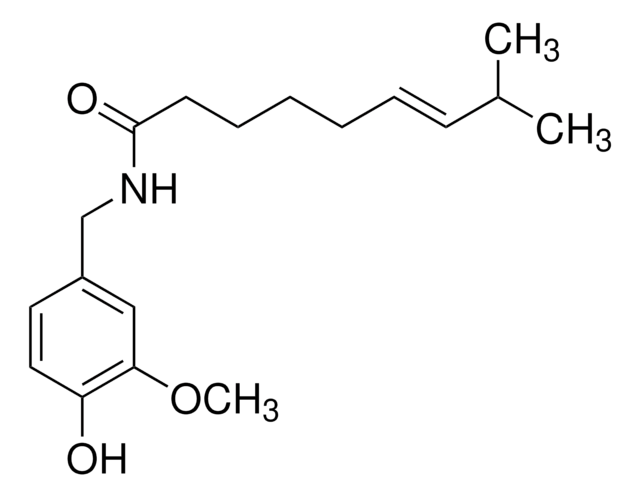M6546
(±)-2-(p-Methoxyphenoxy)propionic acid
solid, ≥98%
Synonym(s):
PMP
Sign Into View Organizational & Contract Pricing
All Photos(3)
About This Item
Empirical Formula (Hill Notation):
C10H12O4
CAS Number:
Molecular Weight:
196.20
MDL number:
UNSPSC Code:
12352202
PubChem Substance ID:
NACRES:
NA.77
Recommended Products
Product Name
(±)-2-(p-Methoxyphenoxy)propionic acid, ≥98%
biological source
synthetic (organic)
Quality Level
Assay
≥98%
form
solid
SMILES string
COc1ccc(OC(C)C(O)=O)cc1
InChI
1S/C10H12O4/c1-7(10(11)12)14-9-5-3-8(13-2)4-6-9/h3-7H,1-2H3,(H,11,12)
InChI key
MIEKOFWWHVOKQX-UHFFFAOYSA-N
Application
(±)-2-(p-Methoxyphenoxy)propionic acid may be used as a sweet taste receptor antagonist to study its effect on allulose-induced glucagon-like peptide 1 (GLP-1) secretion rats. It may also be used to study the response of the secretin tumor cell line (STC-1) to sweetener in the presence and absence of (±)-2-(p-methoxyphenoxy)propionic acid or lactisole.
Biochem/physiol Actions
As a taste modulator, the sodium salt inhibits the perception of sweetness in humans, but not in rats.
Signal Word
Warning
Hazard Statements
Precautionary Statements
Hazard Classifications
Eye Irrit. 2 - Skin Irrit. 2 - STOT SE 3
Target Organs
Respiratory system
Storage Class Code
11 - Combustible Solids
WGK
WGK 3
Flash Point(F)
Not applicable
Flash Point(C)
Not applicable
Personal Protective Equipment
dust mask type N95 (US), Eyeshields, Gloves
Choose from one of the most recent versions:
Already Own This Product?
Find documentation for the products that you have recently purchased in the Document Library.
David E Lanfear et al.
JACC. Heart failure, 5(11), 823-832 (2017-11-04)
This study sought to derive and validate plasma metabolite associations with survival in heart failure (HF) patients. Profiling of plasma metabolites to predict the course of HF appears promising, but validation and incremental value of these profiles are less established. Patients
Miguel Concha et al.
Journal of biomedical materials research. Part B, Applied biomaterials, 106(6), 2464-2471 (2018-02-10)
In this study, highly neutralized, highly porous, and ultralight polymeric aerogels prepared from aqueous colloidal suspensions of chitosan (CS) and chondroitin sulfate (ChS) nanocomplexes, formulated as quasi-equimolar amounts of both, are described. These aerogels were designed as healing agents under
A Sclafani et al.
Physiology & behavior, 61(1), 25-29 (1997-01-01)
Cypha, propionic acid, 2-(4-methoxyphenol) salt, is a commercially available sweet taste inhibitor used in food products. The present study examined whether or not Cypha blocked the sweet taste response of rats. This was accomplished by measuring the consummatory response of
Yoko Murphy et al.
Pain physician, 18(4), E605-E614 (2015-07-29)
Canada has featured the second-highest levels of prescription opioid (PO) use globally behind the United States, and reported extensive PO-related harms (e.g., non-medical PO use [NMPOU], PO-related morbidity and mortality). A recent comprehensive review synthesized key data on PO use
Zhihao Zhang et al.
Biomedicine & pharmacotherapy = Biomedecine & pharmacotherapie, 84, 1350-1358 (2016-11-03)
Dendrobium officinale Kimura et Migo (Dendrobium catenatum Lindley), a prized traditional Chinese Medicine, has been used in China and Southeast Asian countries for centuries. The present study was aimed to investigate the effects and the possible mechanisms of the Dendrobium
Our team of scientists has experience in all areas of research including Life Science, Material Science, Chemical Synthesis, Chromatography, Analytical and many others.
Contact Technical Service